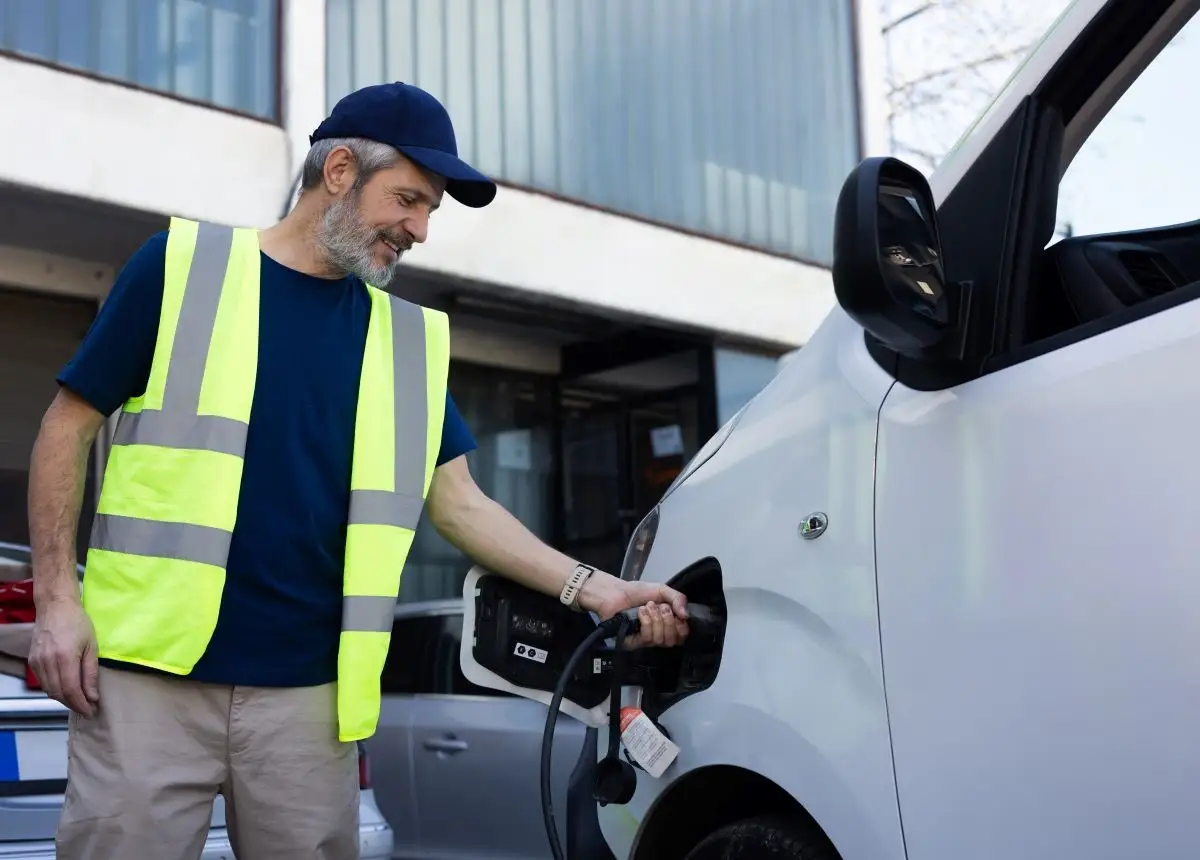Learn about small changes that can help you and your team use fuel more efficiently, like better maintenance practices and smart driving habits, for light and heavy work vehicles.

Maintain your vehicle
Regular maintenance can make a big difference to your vehicle’s safety, lifespan and fuel efficiency — with a well-maintained vehicle using 10–20% less fuel than a poorly maintained one.1
- Check your tyre pressure — A 10psi difference in an axle tyre’s pressure set can cause a 1–2% increase in fuel use. Ask your tyre provider about devices to help you maintain tyre pressure and choose the one that suits you.
- Check wheels are aligned — Even a one-degree misalignment on an axle set could increase fuel use by 5% and reduce the life of the tyre by as much as 25%. Watch for signs such as wear on the tyre shoulder, or uneven wear over the tyre tread.
- Get your vehicle serviced regularly — Have oil and air filters changed when they’re due, check brake condition, and keep your engine tuned, and ensure air, fluid and exhaust systems are free of leaks.
- Ask for eco tyres — Some manufacturers claim that tyres with a lower rolling resistance can reduce energy use by to up 7%.2
- Use heavy vehicle tyres — Heavy vehicle tyres designed and constructed specifically to reduce rolling resistance can improve fuel consumption by up to 3%.3
- Look at tyre tread depth — Bulges, lumps or cuts are signs that a tyre may need replacing. Although 1.5 mm is the legal minimum tread depth, the grip of tyres in wet conditions reduces more rapidly once tread is below 3 mm.
- Don’t forget trailer tyres — These are often poorly maintained or under-inflated, but significantly affect fuel usage. Check them as often as other vehicle tyres.
Improve aerodynamics to save fuel
As heavy vehicles pick up speed, they need more energy to overcome drag. If your fleet includes heavy vehicles with average speeds over 70km/h, these measures could translate to fuel savings of up to 10%.
- Cover empty tipper trucks with a tarpaulin when on the road — 3% fuel savings.
- Place load close to the cab on flat deck trucks — 3% fuel savings.
- Mount a cab roof deflector so it passes over the front edge of the body or load.
- An adjustable deflector is best for trucks that carry loads of different heights or travel empty at times — 1.2-2.4% fuel savings.
- Use fairings to direct air away from the side gaps between cabs and trailers.
Before you invest in modifying your vehicles, ask others in similar operations what worked for them. Run a trial with 4 vehicles — 2 fitted with aerodynamic features and 2 without — and measure the difference. Swap drivers to account for different driving styles.
Tips for smarter heavy vehicle driving
-
Use fuel efficiently
A heavy vehicle uses 20% less energy to move at 90km/h than 100km/h. Drivers save more fuel and emissions by maintaining an average speed, rather than speeding up and braking.
-
Avoid idling
An idling diesel heavy vehicle uses 2 litres of fuel an hour. By turning off the vehicle, you can save up to 5% of your fuel bill. Modern diesel engines only need to idle while air pressure builds. It makes sense to leave the engine running for short stops, but if a driver expects to park for more than 3 minutes, switch off.
-
Fill up with biofuels
All diesel vehicles can safely use B5, which has 5% biodiesel, and many can use a 7% blend (B7). Buses and trucks can use higher blends such as B20 and up to B100 (100% biodiesel), if some steps are followed. Check with your vehicle or engine manufacturer about the blend that's suitable for your vehicles.
-
Close the windows
Opening cab windows at higher speeds causes drag that can increase fuel consumption by as much as 7%. Air conditioning has no significant impact on heavy vehicle fuel economy, so it’s the more efficient way to keep cool on the motorway.
Heavy freight sector pathway
If you are in the heavy freight business and looking to save money and emissions through energy efficiency, this is for you. These free tools and resources have been designed by industry experts for the heavy freight sector.
-
How fuel efficient is your vehicle?
Find out, along with the safety rating and more, by entering your number plate on the Rightcar website.
-
Train staff to drive smarter
Safe and Fuel Efficient Driving New Zealand (SAFED NZ) is a comprehensive one-day driver training course for heavy vehicle drivers. You can train drivers in-house or use external driver trainers.


